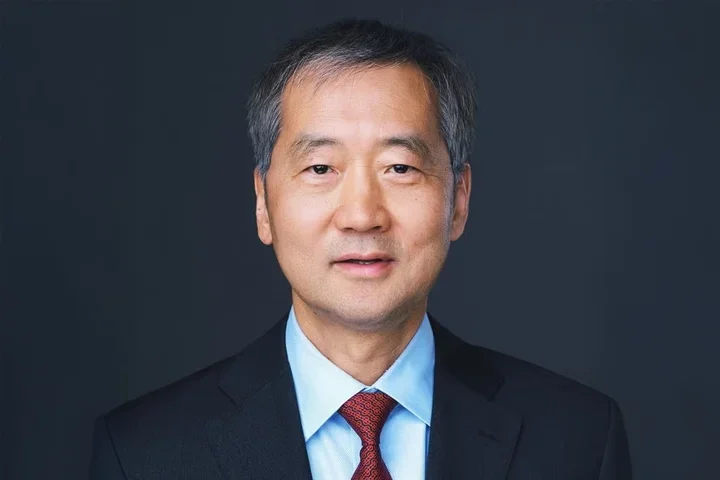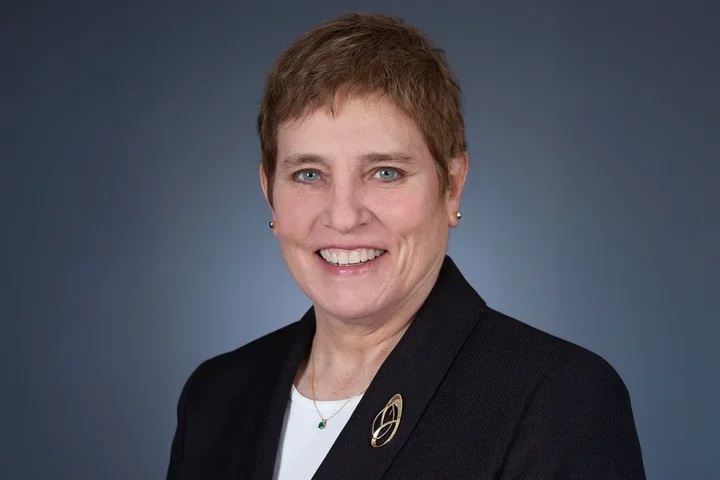What Is a Pediatric Cardiologist?
Faculty Spotlight
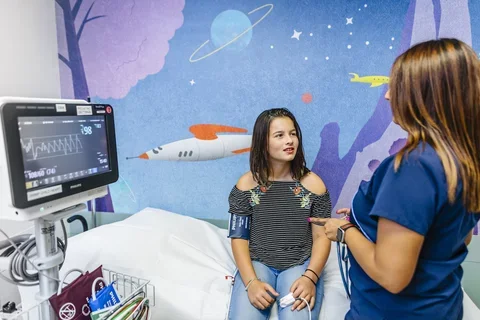
A Day in the Life of Dr. Juan Alejos Pediatric Cardiologist at UCLA Health
Pediatric cardiologist Juan C. Alejos, MD considers patients the highlight of his work.
“I love working with kids and talking to kids,” he says. “I take a deep interest in them—not just what their hearts sound like. I want to hear about their plans and goals.”
He finds rewards in every patient interaction and especially cherishes helping his most unwell patients, his transplant patients.
“I might meet a patient who’s critically ill. They’ll get a transplant and come back to see me at the clinic feeling better. It’s so rewarding to see them living and getting better.”
Read about an inspiring transplant patient named Olivia
Every year, Dr. Alejos and his colleagues have a holiday party for past and future pediatric transplant patients. He always finds it deeply moving, just watching them be kids. They run and play. Members of their families and their care teams see them having fun and fully appreciate the purpose behind all the surgeries and treatments.
“It's really important—what they went through.”
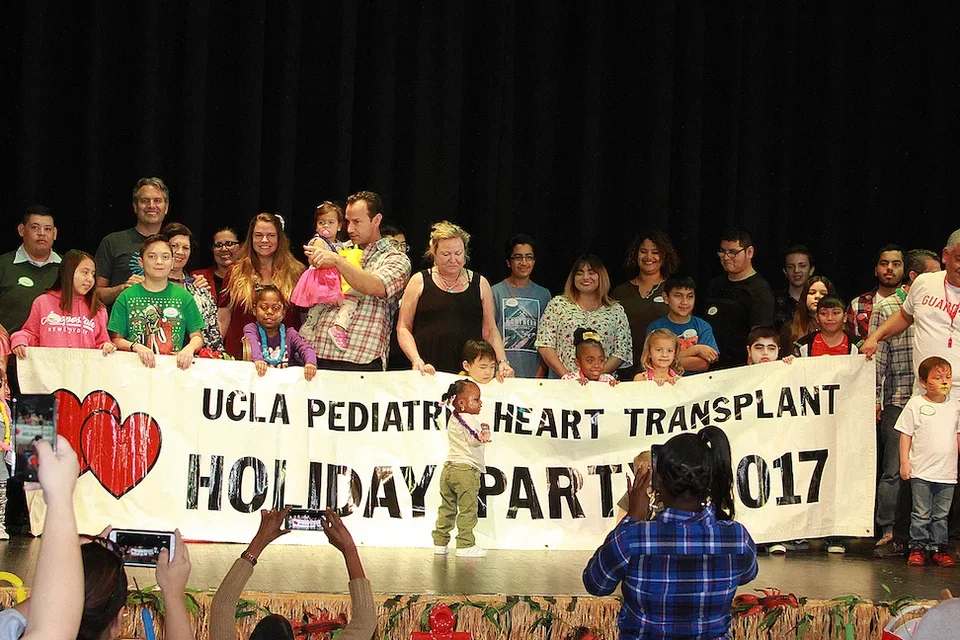
What Does a Pediatric Cardiologist Do?
A pediatric cardiologist is a physician who takes care of the heart of a child. They diagnose and treat heart conditions in infants, children, and adolescents.
Pediatric cardiologists collaborate across medical specialties to ensure optimal outcomes for patients. Their responsibilities range from handling straightforward conditions such as high blood pressure to coordinating with surgeons on major procedures, including pediatric heart transplants.
What Is a Pediatric Heart Surgeon?
Pediatric heart surgeons, or pediatric cardiothoracic surgeons, are physicians specially trained to do heart surgery on children. They perform a range of procedures, including heart and lung transplants and interventions to repair structural heart defects.
Pediatric cardiologists and pediatric heart surgeons collaborate closely on a patient’s care. A patient may be diagnosed by a pediatric cardiologist, see a pediatric heart surgeon for transplant surgery, and then return to their cardiologist for post-surgery recovery treatment and long-term care.
Why Would a Patient Be Referred to a Pediatric Cardiologist?
Physicians might refer someone to a pediatric cardiologist for many reasons. Common factors include:
- Symptoms associated with heart issues
- Congenital heart defects
- A pre-existing condition or family history that could indicate high risk for developing heart issues
Symptoms
Pediatricians or family medicine physicians might refer a patient to a pediatric cardiologist to investigate symptoms commonly associated with heart conditions. These include heart murmurs, unexplained chest pain, and light-headedness/fainting.
Patients and families should consider a referral the first step in addressing a potential problem—not a definitive indication of one.
“A murmur, for example, doesn't always mean there's a problem,” Dr. Alejos explains. “We liken murmurs to flowing rivers. If there's turbulence, if parts of the heart or parts of the body are growing at different speeds, you might hear a harmless heart murmur.”
Congenital Heart Defects
Patients with congenital conditions will be referred to a pediatric cardiologist immediately after birth, if not before. Thanks to advanced diagnostic techniques, such as the fetal echocardiogram, Dr. Alejos sometimes begins caring for patients with congenital heart disease before they’re even born.
“The fetal echocardiogram can help us triage cases in advance and decide, for example, if the mother needs to deliver at an advanced medical center because the baby might need immediate care.”
Pre-Existing Conditions / Family History
A family history of heart disease might prompt patients to try catching issues early by requesting a cholesterol level check or lipid panel. Patients with genetic syndromes, such as Down syndrome and Marfan syndrome, may seek help proactively managing associated heart issues.
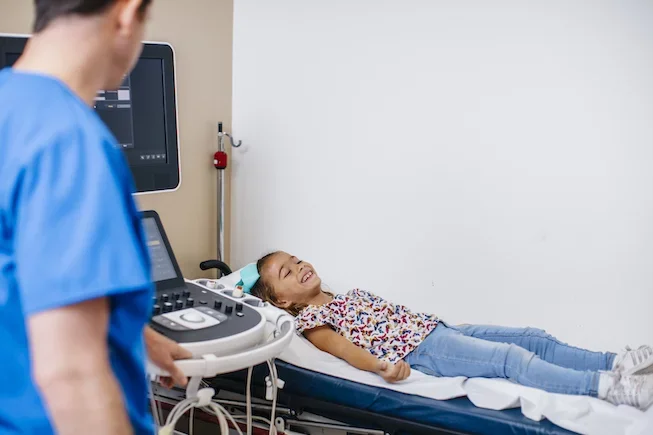
What Does a Pediatric Cardiologist Check For?
A pediatric cardiologist will check for the sources of a patient’s symptoms and, if applicable, continue the process of diagnosing a specific heart condition.
They’ll usually begin by performing a detailed examination and asking questions about the patient’s family history—especially about cases of heart attack, high blood pressure, and high cholesterol. After that, they may choose to order additional diagnostic tests, such as electrocardiograms (ECG), chest x-rays, and computerized tomography (CT) or magnetic resonance imaging (MRI) scans.
What Conditions Does a Pediatric Cardiologist Treat?
Pediatric cardiologists treat a range of heart conditions in infants, children, and adolescents. These heart conditions can be divided into two key categories: congenital and acquired.
Some conditions, such as cardiomyopathy, a disease of the heart muscle, can be both congenital or acquired.
Congenital Heart Conditions
Congenital heart conditions refer to issues children are born with, including structural malformations, such as holes in the heart or valve anomalies. Some conditions may be easily repaired through surgery while others require life-long care.
Congenital heart conditions include but are not limited to:
- Aortopathy
- Cardiomyopathy
- Aortic regurgitation
- Pulmonary stenosis
- Coarctation of the aorta (COA)
- Transposition of the great arteries (TGA)
- Atrial septal defect (ASD)
- Patent foramen ovale (PFO)
Acquired Heart Conditions
Acquired heart conditions, such as high blood pressure, develop over time. Some acquired conditions can become serious enough to necessitate heart transplantation.
Acquired heart conditions include but are not limited to:
- Cardiac arrhythmias
- Myocarditis
- Cardiomyopathy
- Heart failure
- High blood pressure (pulmonary hypertension)
- Syncope
- Hypoplastic left heart syndrome (HLHS)
- Kawasaki disease
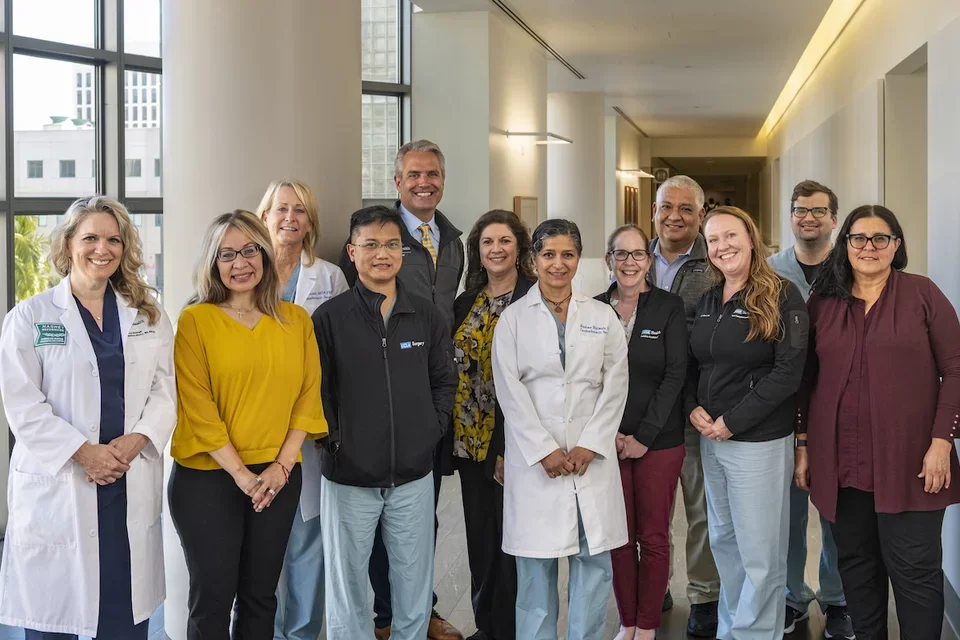
When Do Patients Seek Out a Pediatric Cardiologist
Patients may wish to seek out a pediatric cardiologist to look closely at symptoms that could indicate a heart condition. Some of these symptoms include:
- Heart murmurs
- Chest pain
- Light-headedness or fainting
- Rapid heart rate
- Heart palpitations
Some patients seek the care of a pediatric cardiologist to rule out possible conditions they may be anxious about.
Dr. Alejos says high-profile media stories about athletes collapsing during games as a result of undiagnosed heart conditions, for example, can exacerbate anxieties. These stories may prompt patients, parents, or caregivers to have all symptoms checked by a professional.
“They want to be sure their child can go play their sport, and do it safely,” Dr. Alejos says.
How to Become a Pediatric Cardiologist
Aspiring pediatric cardiologists should expect to complete medical school, residency training in pediatrics, and additional subspecialty fellowship training in pediatric cardiology.
After completing a pediatric cardiology fellowship, physicians may seek additional fellowship training to develop skills in different areas of focus within the field, such as imaging, transplant, or electrophysiology. There’s even room for further specialization beyond that. A pediatric cardiologist sub-specializing in heart failure and transplant, for example, can focus specifically on working with artificial hearts and other devices.
Growing up with a pediatrician father, Dr. Alejos was on the path to becoming a pediatric cardiologist long before he started medical school. His father loved what he did and was always happy to share details about his work.
The elder Dr. Alejos would take the future Dr. Alejos to see patients, listen to their hearts, and learn what the different sounds might indicate. A deep love for cardiology came from these early lessons.
Years later, while Dr. Alejos was training to become a pediatrician, his father sadly passed away from lung cancer. The loss prompted him to reflect deeply on his future. He’d been feeling an urge to practice something else in addition to pediatrics. His father’s memory led him to cardiology, their shared love.
“If he hadn't passed away, I might have done general pediatrics only,” Dr. Alejos says. “It felt like my dad was trying to tell me something and giving me the freedom to do what I wanted.”
Dr. Alejos completed his pediatrics residency and his pediatric cardiology fellowship at UCLA, where he stayed to enjoy a fulfilling career.
He founded and directs UCLA’s Pediatric Pulmonary Hypertension program, serves as the Medical Director of the Pediatric Heart Transplant/Cardiomyopathy Program, and teaches at the David Geffen School of Medicine at UCLA (DGSOM). He’s also the president and founder of the Hearts with Hope Foundation, a non-profit that provides medical and humanitarian support to children with congenital heart disease.
After doing decades of life-saving work in the field of pediatric cardiology, he knows exactly what skills and characteristics make someone a strong potential fit for his field.
Future pediatric cardiologists should be self-aware, possess patient-first leadership skills, and project confidence while remaining humble.
“They should know what they know but also what they don't know,” Dr. Alejos says.
Pediatric cardiologists should have strong self-awareness, so they can effectively connect with all people, not just kids or their parents. They’ll need both leading and listening skills and should feel equally comfortable taking the lead and recognizing when deferring to someone else’s leadership might be best for a given patient or situation.
“This is a team sport,” Dr. Alejos says. “It’s not just about me. It’s about what the surgeon tells me. It's about what the anesthesiologist tells me, and so on.”
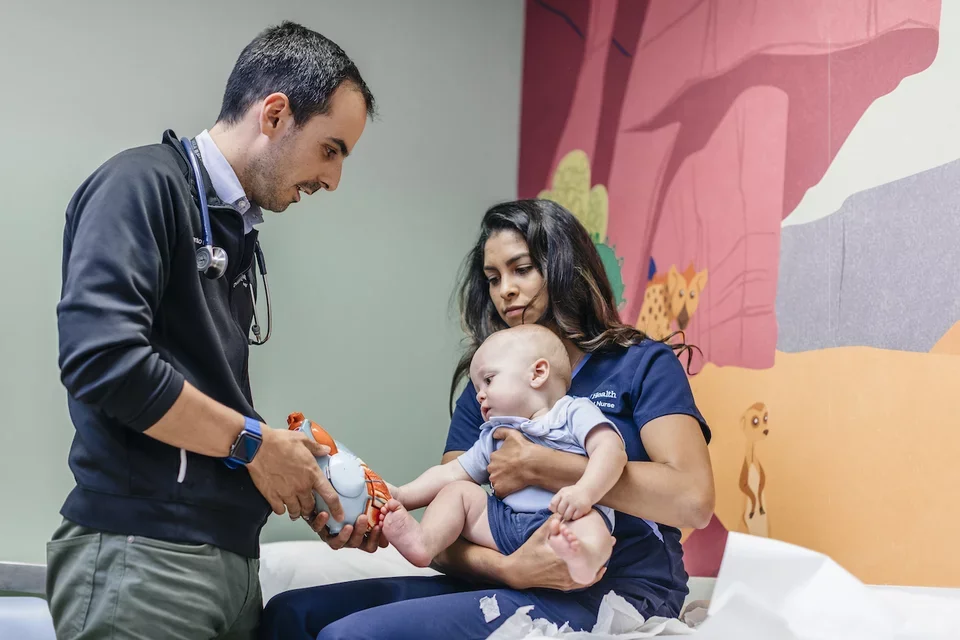
Advice for Future Physicians
Dr. Alejos always shares one core bit of advice with medical students: Approach your plans and future career goals with an open mind. Even if you know what specialty you want to pursue, be sure to explore other interests as well.
“Keep your eyes open. You just never know what you'll find or when you’ll find something you just can’t get enough of.”
As they’re exploring all the possibilities, they should let their true passions guide them.
“Don’t worry so much about making a lot of money or retiring early. Find a field you can be passionate about,” he says, adding that he hopes every future doctor finds a specialty as fulfilling to them as pediatric cardiology is to him.
“I've been doing this for 37 years, and I still love coming to work because I love what I do.”
Dr. Alejos adds that, while medical students can never prepare for absolutely every difficulty they’ll encounter, they should consider what aspects of their chosen specialty might be the hardest.
Early in his career, he recalls working with a patient and family who spoke Spanish first and English second. He didn’t know them well, but because he spoke Spanish, delivering devastating news—that the patient was dying—fell to him.
“That is the most difficult thing—watching parents trying to hold it together when you deliver this crushing news,” he says. “I was not prepared for that coming into medicine.”
He’d thought a lot about what he could fix and how he could take care of patients. He hadn’t yet grappled with the reality that some cases would fall beyond his control to fix. He would have to say the words no patient, parent, or loved one wants to hear: There’s nothing else we can do.
“I go to my patients’ funerals if I can,” Dr. Alejos says, explaining how he’s managed to find peace with the hardest part of his job. “If I'm going to celebrate all the successes, then I also have to acknowledge the failures.”
Finding strategies to manage the biggest challenges and setbacks matters not only to the physician’s own well-being but also the well-being of their patients. Even during difficult times, physicians have a responsibility to give patients the care they deserve.
Pediatric Cardiologist Salary - How Much Do They Make?
According to recent earnings data, the average annual pediatric cardiologist salary ranges from $200,000 to $350,000 annually.
Pediatric Transplant Week
Pediatric Transplant Week is recognized annually from April 21 to April 27. It concludes Donate Life Month.
The observance highlights the critical need to increase donations of organs and tissues and decrease the number of pediatric patients waiting for life-saving transplants. In honor of Pediatric Transplant Week, Dr. Alejos wants to address a common misconception about organ donation.
Misconception: Healthcare professionals won’t do everything they can to save the lives of patients who are registered organ donors.
This misconception contains no shred of truth. It’s a harmful and erroneous belief that applies not only to pediatric transplant but also to kidney transplant and the entire field of transplant medicine as a whole.
While there is an organ shortage in the United States, healthcare professionals are not trying to lessen that shortage with organs harvested from patients they could have saved. They are, however, addressing the shortage by innovating programs and following rigorous standards and protocols to ensure all donors and recipients receive ethical and equitable treatment.
Dr. Alejos hopes people can see organ donation not as something to fear but as something to recognize as a beautiful, selfless gift. People across all ethnicities, all religions, and all cultures can make an incredible impact and save lives by donating any organ.
He encourages people to imagine the recipient of their donation a year after the transplant procedure.
“Picture the things they've accomplished, the people they’ve touched or changed,” he says. “Donations may happen because of terrible things, but they can lead to so much good.”
